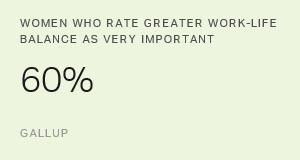"Coaching." It's often served up as a ready-made answer to many challenges facing a call center. Agent performance down on any center measure? Just coach your way out of it. Take those reps receiving complaints from customers about their demeanor on the phone and coach them to gentility. Or corral all of the reps who just can't seem to understand what the customer is asking for and coach them in problem solving. It all sounds logical, and it certainly is a fashionable management approach.
The trouble is, coaching doesn't always achieve the hoped-for results. Why? Because most managers don't know how to coach.
Coaching doesn't come naturally to most people, including those who run call centers. Most centers are run with a management style that stems from their roots as technology centers. And no management style could be less suited for coaching. Managing technology requires a focus on executing systems, and system changes, uniformly. Coaching calls for an entirely different approach, as managers must understand each agent's individual talents, then adjust management styles, processes, and support systems to match each agent's individual needs.
Effective coaching programs
Many centers that try to implement coaching programs don't have the needed management tools in place to increase an agent's performance through coaching. Or they lack managers who have the talent needed to succeed as coaches. In a typical call center coaching environment, a manager periodically sits down with an agent to review the agent's performance, then tries to help the agent make progress against whatever targets have been set -- usually with mixed results.
What makes some coaching efforts thrive, while others fail? For coaching to be successful, here's what call center managers need.
- Objective performance measures
- An understanding of what each agent does well
- A range of best practices to offer as guidance
- A performance-based pay structure
- Managers who have the talent to coach
For coaching to work, agents must know how their work contributes to the center's success and creates value. But most centers don't have objective performance measures for individual agents. To help coaches and agents focus on behaviors that drive value creation, agent behavior must be measured in three areas: productivity, quality, and impact on the customer.
Productivity measures are common in most call centers, and some have begun emphasizing quality measures, but they rarely demonstrate an agent's impact on the customer at the agent level. Yet quantifying an agent's impact on customers is the most important of the three. An agent can do his job well according to quality and productivity measures, but if customers take their business some place else after interacting with him, then the agent had a negative impact on corporate value.
The next piece that is usually missing is an understanding of what individual agents do well. Gallup calls inherent capabilities talents. When coaches don't have insight into an agent's talents, performance improvement becomes difficult.
Great coaches know that one key to achieving outstanding performance is help individuals focus on what they do best. Agents have a tough job, and no two reps reach top performance levels by interacting with customers in exactly the same way. But the best agents do have one trait in common: They know what they do best, and they use their talents to achieve their goals. If a manager were to ask a great agent to mimic another agent's approach, the result would probably be a sharp drop in performance. So coaches must know what each of their agents does well to help them reach new performance levels.
Coaches also must know the strategies or best practices that have been successfully employed by other agents. Although no two agents will approach their jobs in exactly the same way, it is helpful to provide them with examples of successful customer interactions. Agents can take these models and adapt them to their own talents. Agents need the freedom to choose the tactics that will work best for them; they also need a coach who will support them as they try new strategies and behaviors.
Performance-based pay systems can also be helpful in coaching agents. Agents are directly rewarded for creating value for the center when a significant percentage of their income is tied to their performance level. A coach can be similarly rewarded by tying his pay to his team's performance. This kind of pay system is essential for maintaining focus, and focus is the key to sustained performance levels. Pay for performance systems help everyone pay attention to the right things.
Effective coaching sessions
So what does a best practice coaching session look like? Ideally, an agent and her coach meet regularly to review her scorecard, which reflects measurements that track the value she creates for the center. The coach knows the agent's talents and is ready to provide best practices examples. During the time they spend together, the conversation centers on the agent's performance on the scorecard measures and how the agent can use her talents to move those scorecard measures in the right direction. The coach offers support and insights based on the agent's talents and what has worked well for others.
At its best, a coaching session is a joint effort that helps both coach and agent be better at their jobs. At its worst, it degenerates into a fault-finding session that destroys agent performance and drives down corporate value.
Not every individual is cut out to coach. Coaching often requires a set of talents that differ from those required to be a successful agent. Companies must commit to producing an objective agent scorecard, providing a talent-based development plan for each agent, paying agents and coaches for improving performance, and finding managers with the talent to coach. Otherwise, "coaching" will be just another buzzword that won't help improve your bottom line.
